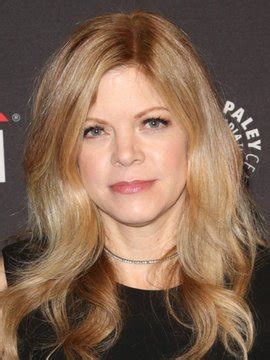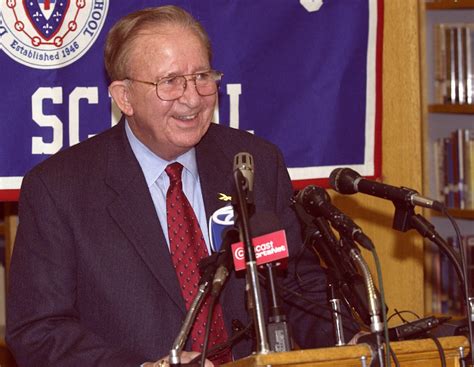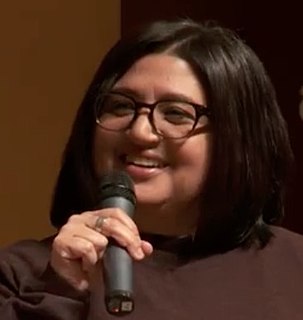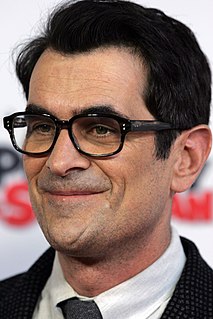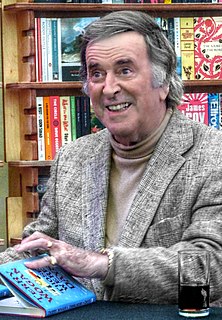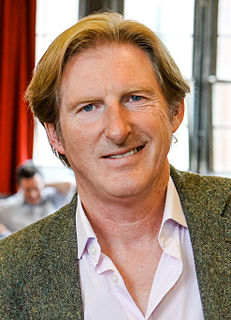A Quote by Stephanie Savage
That's the really fun thing about writing for series versus just doing a pilot or even doing a feature: you get to live with your actors, and as you learn their voices and they learn your dialog, you're kind of building the characters together.
Related Quotes
It's often been said that you learn more from losing than you do from winning. I think, if you're wise, you learn from both. You learn a lot from a loss. You learn what is it that we're not doing to get to where we want to go. It really gets your attention and it really motivates the work ethic of your team when you're not doing well.
What fun that is, doing voices. I would do them every day if they wanted me to. It's so much fun to go to work and not shave and wear your tennis shoes and your gym clothes. As opposed to having to shave, shower, go to the gym, look good, get ready, go to makeup and hair, and all that stuff. I love doing voices. It's just so relaxing.
I never intended to have a career as a journalist, writing about people who make movies. I did it as something that was really rewarding to do, given the opportunity to express myself about something I cared about, and also to learn a lot by watching filmmakers I admired. In a sense, it was my film school. After doing it for a few years, I decided that the time had come to get it together and do some work of my own. Even for a cheap movie, you need film stock and equipment and actors. Whereas to write, all you need is paper and an idea, so I felt that writing might be my stepping stone.
If you're up there [on stage] thinking about what you're doing, you're just not there and it's not going to happen.So trying to learn how to overcome those - which is a normal thing to do. You're in front of a lot of people. People are going to get very self-conscious. So you have to learn to sort of overcome that tendency towards self-consciousness and just blow it wide open. And you jump in and join all those people that are out there enjoying what you're doing together.
The difference when I'm writing a story versus writing a joke is that writing a joke is so much more about the structure and it's less about the conversation. To me, the thing that I love about stand-up is the intimacy between performer and audience.To get it even more conversational was something that really appealed to me and that I really enjoyed doing. My early experiments with it, with just telling a story from my life on stage, it was so satisfying to do. And seemingly for the audience as well. It's a different thing, and it's a different feeling and a different vibe.
But the virtues we get by first exercising them, as also happens in the case of the arts as well. For the things we have to learn before we can do them, we learn by doing them, e.g. men become builders by building and lyre players by playing the lyre; so too we become just by doing just acts, temperate by doing temperate acts, brave by doing brave acts.
It's kind of a crazy thing with kid actors because a lot of them get hired without people really knowing if they're good or not. They get hired for the way they look at a really young age. You also have your fingers crossed around kid actors... because the lessons they learn on set aren't always the best. You can really get whatever you want.
No matter what kind of significance leads you do, you learn a lot from doing schlock. The setup's the same, only you have to work twice as hard to make it the best as you can make it. And a lot of acting is not about acting but technology. Are you standing in your light? Are you out of your light? And if the sound guy's near you, please don't put the coffee cup down at that moment, because you're covering your lines. All of that stuff's going on in your head, so you learn a lot by doing whatever. In my view, never worry that something's not prime - A, number - one stuff.
The character and the actor in a long-running series slowly become one. I think there must be funny stories about actors who, in the pilot for a TV series, did some weird thing with their eyes, or some speech impediment or something, and the next thing you know, it's eight years later, and they're still doing that freaking gag.
When I was at drama school some of the teachers, who were very wise, said to me, 'You're going to be a great actor in your 50s. Now, you're not malleable enough. You're doing one thing well but you need to loosen up a bit.' That happens to actors. You learn more about it and hopefully you get better at it as you get older.
